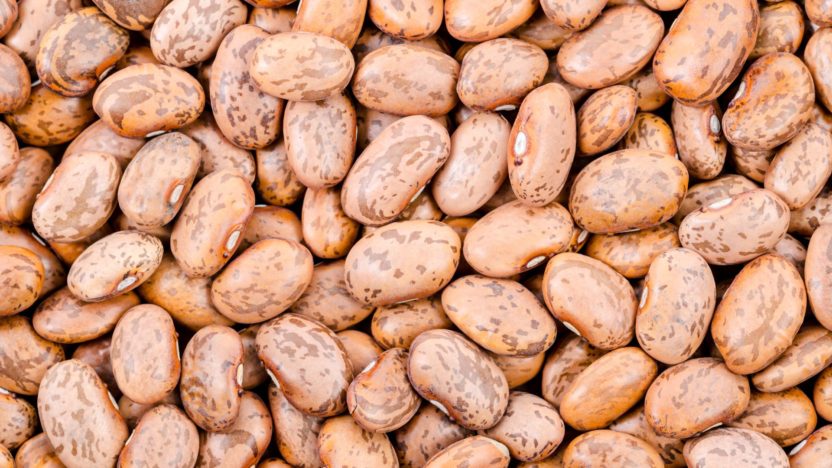 PAT
Toscana
PAT
Toscana
Bean Pievarino
The Pievarino Bean is a Traditional Agricultural Product (PAT) on the national list approved by the Ministry of Agriculture And Forestry, whose requirements are regulated by the production discipline of the Tuscany Region.
Features
The plant looks like a semi-climbing reaching heights around 150 cm and almost contemporary maturation.
The pod is dirty white with bright red streaks; The size of the pod is contained (about 1 cm in diameter, 10-12 cm in length) and contains about 6-7 seeds.
The seed, of medium small size, has an oval shape and an almost cylindrical ellipsis section; It has a light brown to beige coloration with bright red streaks.
Cultivation
The preparation of the soil involves a slight ploughing (2 -30 cm) followed by a hercupic through which the fertilizer is administered, usually organic.
The planting takes place in May with plant sests ranging from 20-30 cm on the row and 150 cm between the rows.
Generally it is sow to postarelle (2-3 seeds placed around the brace that replaced the corn).
Irrigations are carried out in rescue.
The harvest is carried out by hand by collecting the ripe pods. The collected product is dried on the wing and then selected.
Production can be as high as 50 q.li/ha.
The Pievarino Bean has always existed and cultivated mainly in the municipality of Pieve Fosciana in the most fertile areas generally close to the waterways in medium dough soils tending to the sandy.
Pievarino was usually associated with corn that was used as a brace and made the environment around the bean cooler. The pievarino has the characteristic of resisting cooking very well.
In the kitchen it is used in vegetable pasts such as Frantoiana soup, spelt soup, pasta and beans, “flour” (typical Lucca soup made from bean past, corn flour and kale).
The delicacy of the epicarpe and the excellent and decisive flavor makes it also suitable to be cooked “on the bird” combined with pork or simply boiled and seasoned with extra virgin olive oil.


